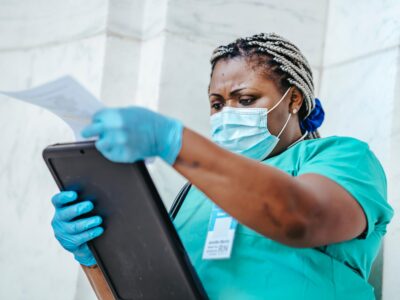In the realm of body modifications and adornments, ear piercing is often taken for granted. However, this common practice isn’t as simple as it may seem. Ear piercing necessitates expertise, skill, and a keen understanding of hygiene to prevent adverse outcomes like infection and tissue damage. In this regard, medical professionals, specifically nurses, emerge as the ideal candidates to perform such procedures. Coupled with the stringent guidelines and training of the Rowan Clinical Piercing Standard, nurses ensure that ear piercing is safe, hygienic, and worry-free.
Why Should I Consider Nurse-Led Ear Piercing?
Anatomical Knowledge and Clinical Expertise
Nurses, by virtue of their training and daily practice, have a thorough understanding of the human body’s anatomy and the mechanisms of infection. This knowledge is indispensable when it comes to ear piercing. Nurses are well equipped to handle any complications that might arise, reducing the risk of injury or infection, and making the procedure safer and more reliable.
Hygiene Standards and Sterilization Techniques
Strict adherence to hygiene standards is a non-negotiable aspect of nursing practice. Nurses are trained to meticulously clean and sterilize their equipment, which minimizes the chance of bacterial transmission during ear piercing. Additionally, they can educate clients on aftercare techniques, further preventing post-piercing complications.
Empathy and Reassurance
Apart from their medical expertise, nurses bring a humane touch to their practice. They understand that ear piercing can be a significant event for many people, especially children, who may be nervous or scared. Their empathetic approach helps to ease fears, provide comfort, and turn the experience into a positive one.
What is the Rowan Clinical Piercing Standard?
The Rowan Clinical Piercing Standard further strengthens the argument for nurses conducting ear piercings. Based on extensive data and research, this standard has resulted in an adverse outcome rate of less than 1% against an industry standard of 30%, a testament to its efficacy (Meltzer, 2005).
Rowan achieves this success by believing that the ear piercing experience doesn’t end the moment you leave the studio; thorough aftercare with optimal wound care in mind and a variety of follow-up methods and resources ensure that piercings have the best chance of healing.
Developed with stringent guidelines prioritizing client safety, the Rowan Standard puts forward a set of ear piercing protocols and training that include equipment sterilization, hypoallergenic earrings, and aftercare practices. Its rigorous standards align seamlessly with a nurse’s professional ethos, making it an optimal choice for those seeking a safe and hygienic ear piercing experience.
Backed by a Medical Advisory Board
To ensure the continuous development and refinement of its piercing standards, Rowan is backed by a Medical Advisory Board. This team of medical experts provides guidance and ensures that the standards in place are scientifically sound, always up-to-date with the latest medical research, and in line with best practices.
Innovation and Improvement
Rowan is not just content with setting the bar; it’s committed to pushing the boundaries of safety and quality in the field of ear piercing. Rowan is conducting ongoing research to better understand all aspects of ear piercing, from material safety to healing processes. This commitment to innovation and improvement aligns perfectly with the nurses’ drive for patient safety and care quality.
As we consider the benefits of nurse-led ear piercing, it’s important to acknowledge the significant contributions of the nursing professionals who choose to apply their expertise in this field. If you’re a nurse who values the blend of technical skill, patient education, and personal connection that characterizes nursing at its best, ear piercing according to the Rowan Clinical Piercing Standard offers a unique opportunity to extend your skill set. This role allows nurses to bring the highest standards of healthcare to an everyday procedure, improving safety, reducing anxiety, and enhancing the overall experience for clients. If you’re inspired by the idea of making a difference in this innovative and expanding field, we encourage you to explore this unique application of your skills and experience. Nurses are the heart of the healthcare system, and with Rowan, they can be the heart of the ear piercing industry too.
In conclusion, when it comes to ear piercing, the combination of a nurse’s professional expertise and the stringent guidelines of the Rowan Clinical Piercing Standard is unmatched. This blend of medical knowledge, high hygiene standards, and an empathetic approach provides a safe, hygienic, and anxiety-free ear-piercing experience that is second to none. With Rowan and nurses leading the way, ear piercing is not just a cosmetic procedure but a clinical practice that prioritizes your safety and well-being above all.
To read all about Rowan, check out our site at heyrowan.com.
References:
Meltzer, D. I. (2005). Complications of Body Piercing. American Family Physician, 72(10), 2029–2034.

















